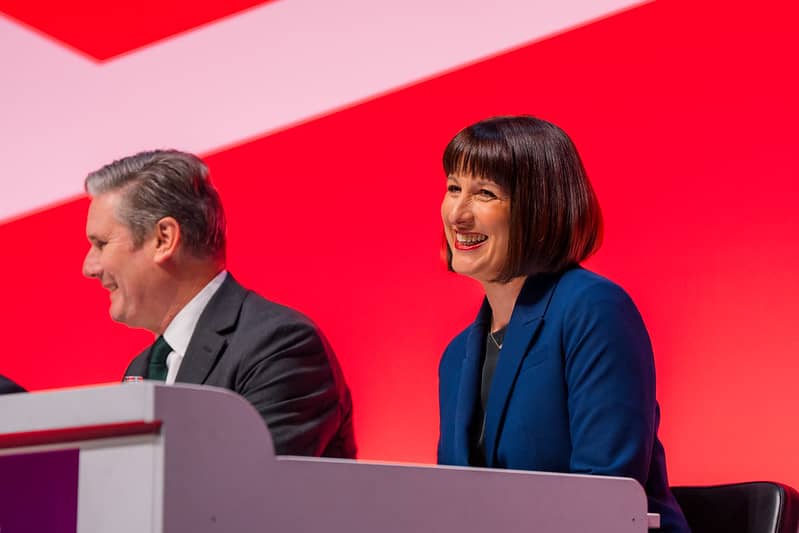
File image of Starmer and Reeves. Image licensed as CC BY-NC-ND 2.0.
The British pound and gilts can benefit if Labour breaks its manifesto promise on taxes, and Rachel Reeves sticks to her fiscal rules.
The Labour government could be willing to break manifesto pledges on taxes to find the money it needs to fill a growing hole in its finances.
Reports reveal the party could break a manifesto pledge to not increase income tax, value added tax (VAT) or national insurance rates.
These 'big lever' taxes could make plugging the gap that has arisen in the UK's budget a lot easier for the Chancellor of the Exchequer to meet her fiscal rules, which will placate the market and ease fiscal risks on the pound.
The currency has been under pressure in recent weeks as uncertainty grows over the scale of tax rises and spending cuts required of the November 26 budget.
Chancellor Rachel Reeves needs to find in the region of £30BN in taxes and spending cuts to plug a gap in the finances that has opened since her last budget.
Darren Jones, chief secretary in Prime Minister Keir Starmer's office, said on the opening day of the Labour Party conference that "The manifesto stands today because decisions haven’t been taken yet. I'm not ruling anything out, and I'm not ruling anything in."
VAT, income tax and national insurance on workers are by far the biggest earners for the government. By promising not to raise these taxes, Labour have severely restricted its ability to raise revenue to fund public spending plans.
Instead, Labour has opted to tinker around the edges, making the UK tax code more complicated while targeting businesses and investors with higher taxes..
Last year's tax increase on employment has had the unsavoury effect of slowing the jobs market and PAYE data shows employment has fallen in most months since Labour have come into power.
But by targeting the big taxes, the government could avoid implementing tax increases with unexpected negative side effects and raise the required revenue to balance the books.
Raising these taxes won't be politically popular, but for the economy it's a 'least-bad' outcome from a government that simply refuses to cut spending.
UK ministers are meanwhile said to be putting pressure on UK Chancellor Rachel Reeves to boost spending at a time when she has to find savings and tax rises to the tune of £30BN to plug an existing gap in her budget.
Prime Minister Keir Starmer is also under pressure from insurgent rival Andy Burnham to ditch concerns about the bond market and spend big.
However, and to her credit, Reeves has confirmed she will continue to respect the fiscal rules, confirming her to be a relative island of sanity in a party that looks desperate to lurch leftwards.
Speaking to Labour delegates, Reeves warned that, when markets lost confidence, ordinary voters suffered the consequences via higher prices and interest rates.
"There are still people who peddle the idea that we could just abandon economic responsibility and cast off any constraints on spending. They are wrong — dangerously so," Reeves said in a thinly-veiled attack on Burnham.
The comments will calm bond markets and mean the Labour Party conference should leave pound exchange rates relatively unscathed.
